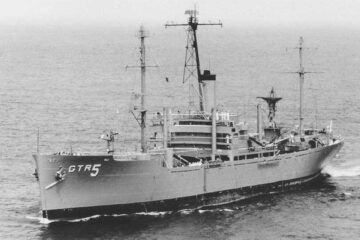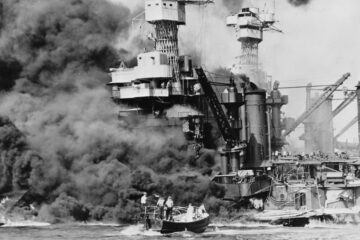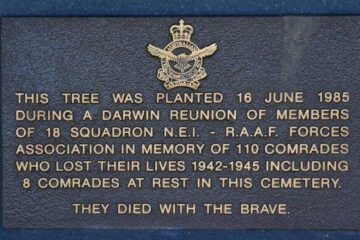This series is a tribute to Dr. Jack Ford who passed away in June 2025
Symposium: Allied co-operation in Brisbane during WWII: Australia, USA, Netherlands, UK – 30–31 August 2025 at UQ- Bus Tour Brisbane WWII sites – 1 September More info.
This article series explores the evolving relationship between the Netherlands East Indies (NEI), the Netherlands government-in-exile, and Australia during the Second World War. Initially distant, the Dutch–Australian connection was rapidly transformed by the Pacific War. Political mistrust, logistical frustrations, and conflicting visions for the future of Indonesia collided with shared strategic needs and the growing urgency of Allied cooperation.
At the start of the war, neither Australia nor the Netherlands was well prepared for what lay ahead. Australia had minimal experience in international diplomacy, relying largely on Britain to manage its foreign affairs. The arrival of an exiled foreign government on Australian soil—something entirely unprecedented—required improvised decision-making, new administrative arrangements, and often tense negotiations. The Dutch, cut off from their occupied homeland, were entirely dependent on Australia and other Allies for logistical support and operational continuity.
Both nations were treated as minor allies in a global conflict dominated by larger powers. Within that context, misunderstandings were common and expectations were frequently misaligned. Yet despite these immense challenges—and often deep cultural and political differences—the Dutch and Australians found ways to work together, solve urgent problems, and forge effective wartime partnerships.
Each article in the series examines a distinct aspect of this complex wartime relationship—from early tensions over Dutch neutrality and Australian bureaucracy to the internal fractures within the Dutch exile administration, and from Indonesian reform movements to the reshaping of Australia’s foreign policy.
The series also highlights the role played by individuals like Hubertus van Mook and Charles van der Plas, both of Indo descent and reformist in outlook, who helped shape Dutch approaches to decolonisation from within the Australian exile setting.
Looking back, it is clear that the shared experiences of the Second World War laid the foundation for a uniquely resilient bilateral relationship. Even though Australia and the Netherlands took different paths on the question of Indonesian independence, the bonds formed through cooperation in adversity proved stronger than the disagreements.
Today, that relationship continues. The Netherlands and Australia collaborate closely in areas such as defence, intelligence, and diplomacy. Dutch and Australian military personnel regularly participate in joint exercises in the Pacific, and both nations maintain military attachés in each other’s capitals—symbols of an enduring partnership forged in the difficult days of wartime.
This series provides essential historical background to that shared journey. It reminds us that even in moments of uncertainty, when resources were scarce and tempers frayed, mutual respect and persistence made it possible to overcome obstacles. What began as a forced alliance became, over time, a lasting friendship—one well worth remembering and celebrating.
Paul Budde
Explore the series:
- Between secrecy and survival: Australia’s frustration with Dutch neutrality on the eve of war
How Dutch hopes of neutrality and secrecy clashed with Australia’s urgent need for regional defence cooperation in 1941. - Divided in exile: tensions between Batavia and London in the Dutch war effort
The fractured wartime relationship between the Dutch government-in-exile in London and the autonomous NEI administration in Batavia. - Reform or restoration? Political tensions over the future of the Netherlands East Indies during wartime exile
The ideological rift between Dutch reformers like Van Mook and colonial traditionalists in exile, and how these shaped Allied relations. - Wartime reform and Indonesian voices: Dutch–Indonesian political tensions in exile
Indonesian aspirations and Indo-Dutch reformist voices during exile—and how these were received by both Dutch and Allied leaders. - The Dutch purchasing mission and wartime supply issues in Australia
Administrative roadblocks, discriminatory policies, and cultural tensions that strained Dutch experiences in wartime Australia. - From indifference to diplomacy: how the war transformed Dutch–Australian foreign relations
How a war of necessity forced two formerly disconnected countries into direct cooperation, setting the stage for postwar transformation.
Each article contains references to the others and is designed to be read either as a standalone story or as part of the larger series. Together they contribute to the growing recognition of Dutch–Australian wartime cooperation and its long-term historical impact.
See also:
A Dutch military and civil inventory in Australia – March 1942 snapshot
Sources
This series is based on a combination of primary and secondary sources, with particular reliance on the following works:
- Jack Ford, Allies in a Bind: Australia and the Netherlands East Indies in the Second World War, CQU Press, 2001
A foundational scholarly work documenting the diplomatic, military, and political challenges of Dutch–Australian wartime relations. - Rene W. A. van den Berg, Unchained Interests, Netherlands Staff College Monograph, Netherlands Staff College Monograph, 2021
A Dutch military analysis of the failures of ABDACOM and the impact of unequal partnerships on Dutch strategy in the Pacific.
Additional material was drawn from government archives, postwar diplomatic correspondence, and historical studies of Dutch decolonisation, Indonesian nationalism, and Australia’s wartime foreign policy shift.


